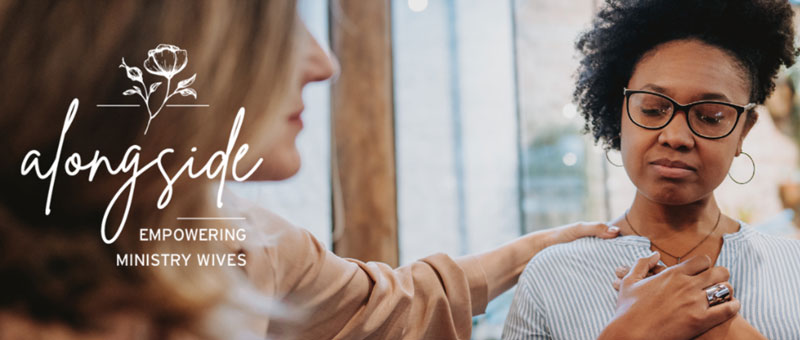The First Sunday
This past Easter, as my family loaded into the car donning our Sunday best, we all looked at each other and marveled at the surrealness of it. My husband Zach turned to me and said, “This is the first time I haven’t worked on Easter since I was seventeen.” (He’s 41 now, just to give you some perspective.) The night before, he helped me hide eggs for our kids. Earlier that morning he had woken up with our children to watch them go through their Easter baskets. He then enjoyed a leisurely brunch with us in our pajamas. In the ten years since being parents, he had never been home to do any of that before. It was wonderful, but oh so bittersweet. It was the first Sunday in twenty years he wasn’t a pastor.
A Time of Rest
April 3, 2022, was Zach’s last day in pastoral ministry for the foreseeable future. His decision to resign came after months of our fervent prayer, the pursuit of wisdom, engaging in therapy, and seeking medical intervention. Zach’s resignation was unplanned but necessary. No job, no matter how suited you are for it or called you are to it, is worth sacrificing your well-being. Zach’s soul was exhausted. His tank was empty. His heart was weary. In summary, he was burnt out. After twenty years of faithful service, God was leading him to a time of rest.
The Gift of Empathy
I am no stranger to depression and anxiety. I’ve walked the beaten path of darkness myself. It looked different for me than it did for my husband. I was single, in my 20’s, and deeply ashamed. I made dishonest excuses for my behavior rather than admitting I needed help. I chose to stay hidden in the shadows. I paid dearly for it. God brings our struggles full circle though, and I earned every bit of empathy I now have for those who are walking the broken road of depression and anxiety, including my husband. Resentment held no place in my heart. I knew better than anyone that the road to recovery would be long and arduous. There would be no quick fixes. Still, it was terrifying to watch the light and passion drain from his eyes.
It was exhausting to hold the weight of his burden, the responsibility of his and our children’s well-being on my shoulders. I wrapped fear and fatigue around me like a weighted blanket. I begged friends to pray for strength for my soul. Every day God gave me just what I needed. He met me exactly where I was and filled my cup with just enough to keep going, keep supporting, keep loving, and keep extending grace to my weary spouse. I recently read,
“We could think of pity as noticing that a friend has fallen in a hole and feeling bad for him that he’s down there. Sympathy is lying down on the side of the hole to talk to him while he’s there. Empathy is getting in the hole with him until help arrives, knowing that company is the best help of all,” (Sissy Goff, Are My Kids on Track?).
That’s precisely what these last few months have felt like: sitting in a deep, dark hole, holding my husband, and waiting for help to come. There have been seasons in our marriage where I’ve needed to roll up my sleeves, cast off my selfish ways, put on my big girl pants, and embrace my job as a wife like my husband’s life depends on it, and this has been one of them. Along with motherhood, it is the greatest honor God has ever given me.
Courage Leads to Healing
I have fallen in love with Zach even more during this season, as odd as that sounds. Unlike me, he immediately asked for help when he realized things weren’t right. He has stayed very in tune with his emotional and mental health. He’s never stopped verbalizing his feelings, admitting his fears, or owning his weakness. He has pursued friends and mentors, welcoming their prayers and wisdom. Zach has shared openly about his inability to carry on, knowing full well he may not be met with an empathetic ear. It’s for these reasons he is healing, recovering, and embracing life again. The courage it took him to walk away from the only career path he’s known since he was a teenager, is worthy of tremendous respect. He is innately wired to be a pastor; if you met him, you’d know he is ridiculously good at his job. So, to walk away took equal amounts of guts and humility. I admire him. I love him. I stand by him.
Loss of Security
There is grief in this unanticipated season. We have both asked, “Who are we outside of pastoral ministry?” Zach was already a pastor when I met him. We have never known a life outside of serving the church. There’s never been a time when I wasn’t sharing my husband with a congregation of people or when our calendar didn’t revolve around his church schedule. There’s never been a time when we entered and left church together on a Sunday, or when he wasn’t out at least two nights a week for a meeting or event. There’s never been a time we weren’t aware of the number of eyes watching our behavior or our social media posts. There’s never been a time Zach was home on Christmas Eve, Easter Sunday, or Mother’s Day morning. Last weekend was our first taste of what that even feels like. Being a pastor’s family has its downsides to be sure, but it also has its perks; we have never been without community. We have never moved into or out of a new home without a crowd of people to help us. We have never experienced “church shopping.” We’ve never felt out of the loop. The staff and wives at each church have become a tight-knit circle of trust. In church, we are known better than anywhere else. For us, church has equaled security. Our home has been wherever our church is.
Redefining Ministry
Personally, I’m grieving the loss of my role as a pastor’s wife, (which is ironic, because you may recall, I never thought I wanted to be one in the first place. Read part one here). Introducing myself as such has become second nature. I think I surprise some people (because I seem so “normal”) and others not at all (because I’m also a pretty straight arrow in the ethics and morals department). I’ve had people end conversations with me upon finding out my husband’s a pastor, certain I’d only judge them. I’ve also had people saddle up to me and vulnerably share their struggles, certain I’ll compassionately listen and pray for them. Without realizing it, I’ve used my title as a pastor’s wife as a witnessing tool. I don’t need to say much else to make my belief in Jesus known. It’s become a crutch I think, one I can no longer lean on. I’ll need to share boldly about my relationship with Jesus instead of simply offering up what my husband does for a living. The word “ministry” has taken on new meaning. I’m grateful for the reminder that regardless of our job in the church, our service to God’s people and our calling to share the Gospel hasn’t changed one bit. Seventeen years of being a pastor’s wife and 28 years of a relationship with Jesus Christ have equipped me for the task. Our ministry as believers is still going strong.
Practical Takeaways from Alongside
#1 BURNOUT
If you see signs of burnout in yourself or your husband, now is the time to act. Don’t wait until things are falling apart and damage is being done to your hearts, your family and your ministry. Sit down together and come up with a plan.
- Most big leaders have a (or a number of) mentors and coaches. Seek out godly leaders with experience in this trench to walk alongside you.
- Visit our Recommended Resources page for suggestions of centers for ministry recovery that deal specifically with ministry trauma and burnout.
- Find a good Christian counselor, even if it means laying down some fear and pride. Sometimes there truly is no one in your congregation that is safe to talk to. But that DOES NOT mean that there is no one. Seek them out. (We realize that in some states, Christian counselors are full and that insurance and state to state reciprocity makes this complicated. It may mean finding someone that will accept out-of-pocket and asking your church leadership for a stipend to cover it. I know that’s scary.)
#2 WRESTLING WITH YOUR IDENTITY
I’ve needed to wrestle through these questions, intentionally inviting God to speak into them. Regularly visiting these issues helps me keep my identity in Christ secure while not missing the unique opportunities that come with this calling.
- Do I do anything as a pastor’s wife in order to earn God’s approval or love for me? Even if I know in my head that His love is unconditional, do I assume that God has expectations of me that are much harder to attain than what He’s told me in His Word?
- Am I willing to live in the tension of being a pastor’s wife and being a unique individual, allowing this relationship to inform who I am without defining me?
- When my husband (or another person) is hurting, how do I climb in the hole without being consumed by what I find there? How do we “be present” without taking on the full weight of the pain?



